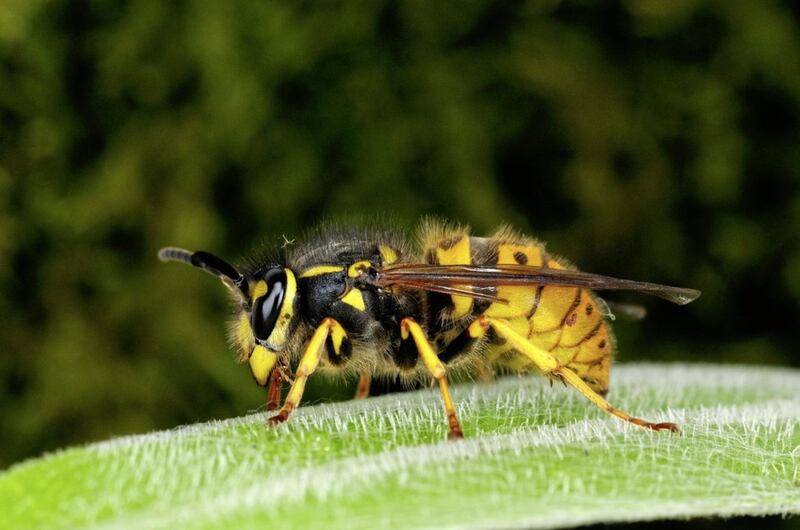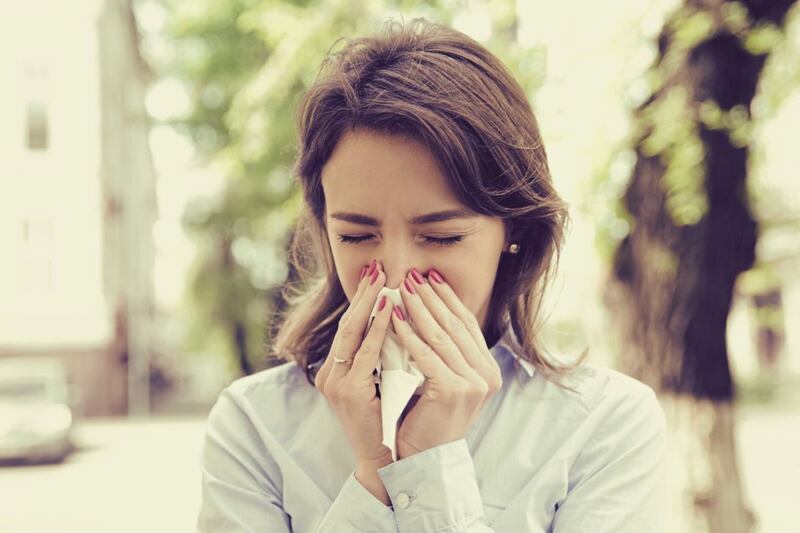
1. Dehydration
Dehydration can be a real threat to your summer fun - and it can be dangerous too.
"Dehydration occurs when there is a deficiency of fluid in the body, caused by not drinking enough water," explains Dr Joshua Berkowitz, medical director at IV Boost UK (ivboost.uk).
"About 60 per cent of the body is made of water, but we lose fluids constantly throughout the day via sweat, urine and regular bodily functions such as breathing."
According to Berkowitz, symptoms of dehydration can include excessive thirst, dark coloured urine, muscle tiredness, dizziness and light-headedness.
The encouraging news is that people who have acute dehydration, often caused by prolonged physical activity, extreme heat exposure, or from not drinking enough water, can normally make a quick recovery through rest and rehydration.
"In this case, it's important to refrain from drinking caffeine, alcohol and also reduce stress levels to improve hydration and recovery," says Berkowitz.
"Keep fluid levels high throughout the day, drinking water even when you're not thirsty and supplementing with electrolytes."

2. Insect bites and stings
Summer means embracing the great outdoors, but many insects love the heat, which means you're more likely to encounter mosquitoes, bees and wasps.
"Most insect bites and stings cause small localised reactions," explains Dr Stephanie Ooi (@the_gp_mum).
"You may notice the area becomes red, raised and feels itchy, so use a cold compress over the area to reduce the swelling."
Easier said than done, but try not to scratch the area as any breaks in the skin may cause an infection to develop.
"If you've been stung by a bee, you might want to try to remove the sting and venom sac if it's visible," Ooi adds.
"You can scrape it out using your fingernails or something with a hard edge, such as a bank card - but don't squeeze it out or use tweezers as this can spread the venom. Wasps and hornets don't usually leave the sting behind, so be aware they could sting again and calmly walk away from the area."
Ticks, meanwhile, should be removed as soon as possible to reduce the risk of getting an infection like Lyme disease.
"For this, a pair of tweezers or tick removal tool is helpful," she adds.
"Try to grab the tick as close to the skin as possible and firmly pull straight up, then wash with soap and water or antiseptic afterwards."
If the area is painful after, painkillers such as paracetamol or ibuprofen, if suitable for you, may help. A pen using heat technology, such as Bite Away (mybiteaway.co.uk), can also be used to provide relief.

3. Sunburn
Getting sunburnt just once every two years can triple your chances of developing skin cancer, according to Cancer Research UK, so take extra care to cover up with sunscreen, hats and clothing.
"Sunburn occurs when UV radiation from the sun damages epidermal skin's DNA and leads to cell death," says Dr Susan Mayou, consultant dermatologist at the Cadogan Clinic (cadoganclinic.com).
"At a cellular level, sunburn is associated with microscopic changes in the skin and inflammation."
You usually know if you've got sunburn - because your skin will be red and sore. Symptoms can also include swelling, tenderness and irritation, skin feeling hot to touch and, in severe cases, blistering and fever or chills.
Mayou adds: "Severe cases of sunburn may result in second-degree burns, dehydration, electrolyte imbalances, secondary infection and shock."
The best way to approach sunburn? Avoid getting it by taking all necessary sun safety measures.
And if it does happen, Mayou suggests: "Take a cool shower and apply a cold compress to the affected area for immediate relief."
Keep the skin hydrated with moisturiser too: "Aloe vera has been proven to have excellent soothing properties and is anti-inflammatory, so very effective in calming the effects of sunburn."

4. Allergies
If you have hay fever, your allergies will be worse when the pollen count is high, so try to plan ahead.
"It's also advisable to avoid grassy areas, particularly in the early morning, evening or night, when the pollen count is highest," says LloydsPharmacy pharmacist Anshu Kaura (lloydspharmacy.com).
"When it comes to treating allergies, you can opt for a targeted treatment, which can help relieve common symptoms, including itchy, watery eyes, such as LloydsPharmacy's Fusion Allergy Eye Spray (£11.99)," she notes.
"If you experience a number of symptoms, an antihistamine tablet may be the best course of action. These stop the action of histamine, which is released during inflammatory process and causes the onset of symptoms."

5. Food poisoning
Rates of food poisoning increase in summer, because bacteria grow faster in warmer weather and foods can quickly spoil.
Plus, it's easy to undercook meats on the barbecue. "Food poisoning can cause vomiting, diarrhoea or a combination of the two," says GP Dr Rachel Ward (@drrachelwardgp).
The most important management of food poisoning is remaining well hydrated. "As you lose water, salt and sugars with diarrhoea and vomiting, rehydration sachets are an ideal way of replacing what you have lost. They're usually available from your pharmacist," says Ward.
If you have underlying medical problems, such as diabetes or heart disease, Ward says you may need to take extra considerations with some medications, so check with your GP.
Though most cases of food poisoning are mild and pass in a few days, it can sometimes be more serious.
As Ward stresses: "If you experience fever, blood in your stool or vomit, severe abdominal pain or if you are unable to keep fluids down, seek medical advice."






